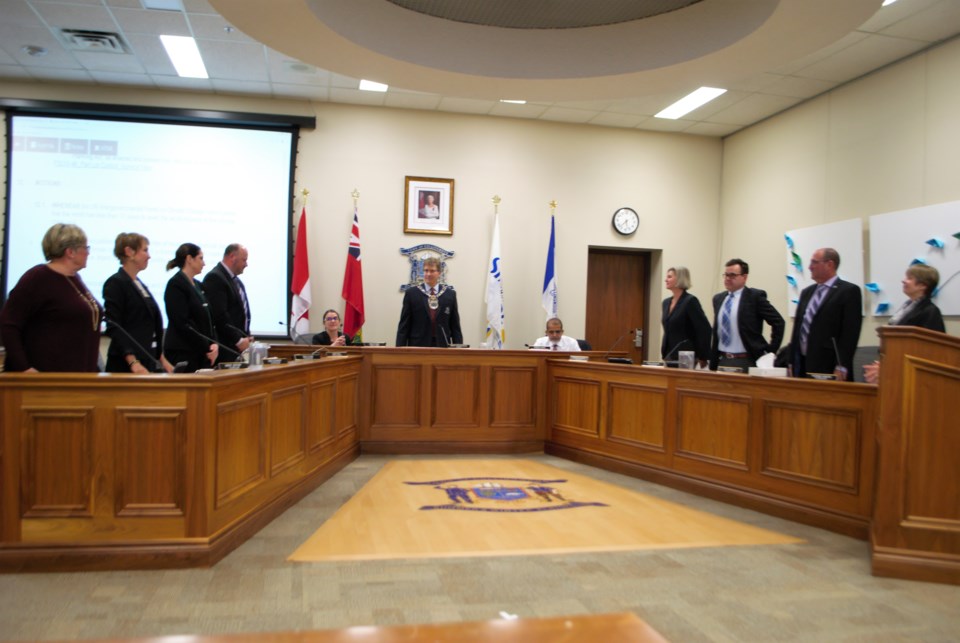Collingwood's town council, elected in 2018, is entering the final year of its four-year mandate. The next municipal election, slated for Oct. 24, 2022, is less than one year away.
With that in mind, we canvassed Mayor Brian Saunderson, Deputy Mayor Keith Hull and all seven town councillors to answer six key questions heading into the home stretch of their tenure.
They were given a limit of 150-words per response. Their responses are published verbatim.
Coun. Steve Berman, Coun. Bob Madigan and Mayor Brian Saunderson declined to participate.
Click here to read answers to our first question.
What is the biggest challenge facing town council in its final year?
Deputy Mayor Keith Hull
“Managing expectations and ensuring that the next council is set up for success. COVID-19 has thrown a curve but I believe we have managed the crisis well. However, it has put us behind in terms of next steps regarding the Terminals, a performing arts centre and various capital projects. Specific to the Terminals, we have a process in place (the third cultural assessment survey was just released) and it is important to ensure that the process is allowed to proceed in a manner that will properly identify opportunities and a legacy that residents 100 years from now can publicly access, utilize and cherish. Often, in the final year of a term there is a desire or rush to achieve something for the sake of being able to say we ‘got something done.’ We need to allow the process to work and if that means handing it off to the next council, that is OK with me.”
Coun. Tina Comi
“The council itself.”
Coun. Deb Doherty
“I anticipate that the biggest challenge facing council in the final year of its term will be the lifting of the Interim Control Bylaw and implementation of the Land Use Planning and Water Allocation Framework. This will allow the town to once again start releasing water capacity for residential and commercial projects with highest and best benefit to the community as a whole. Without the decision to institute the ICBL, allowing time for the development of that framework, the town would not have had sufficient ability to fairly and transparently prioritize a limited supply of water capacity to the best advantage of the entire community, not just to the benefit of the proponent with the ability to vocalize loudest.”
Coun. Yvonne Hamlin
“The future of the grain Terminals is at the top of my list. The built heritage assessment is nearing completion and following that report’s release we will face a decision on the Terminals’ fate. If we decide to move forward on a plan to re-use the Terminals, consideration will be given to what the nature of that re-use should be, and whether we should seek partners at senior government levels or the private sector, or both. It goes without saying that any plans for re-use adopted for our community must be fiscally responsible and provide significant amounts of public green space.
The elephant in the room is the water issue and the pause on development. I have decided this is #2 in terms of challenges as staff have presented concrete solutions that should lift the immediate challenges sooner than originally expected.”
Coun. Kathy Jeffery
“In the final time left in this unprecedented term of municipal council, council needs to be working in earnest on the many critical files it has pending: to contribute positively to economic recovery for our town, finding solutions to work toward ending homelessness in our community, managing the ICBL (interim control bylaw) regarding water capacity and development as a result of a calculation error, and managing the Official Plan policy to effect better growth plans to absorb provincial induced population targets and the demand to live in our town while maintaining its desirable sense of place and affordability.”
Coun. Mariane McLeod
“Recovering from the pandemic. Some projects are a year behind schedule, and we’re just starting to see the implications of supply chain issues that are an echo of the first waves. While we continue to regain public trust following the events that led to the Inquiry, we also have to focus on managing growth mandated by the province and allocated by the county to keep the quality of life that draws so many people here; things like that Collingwood is safe, walkable, welcoming and inclusive.”
